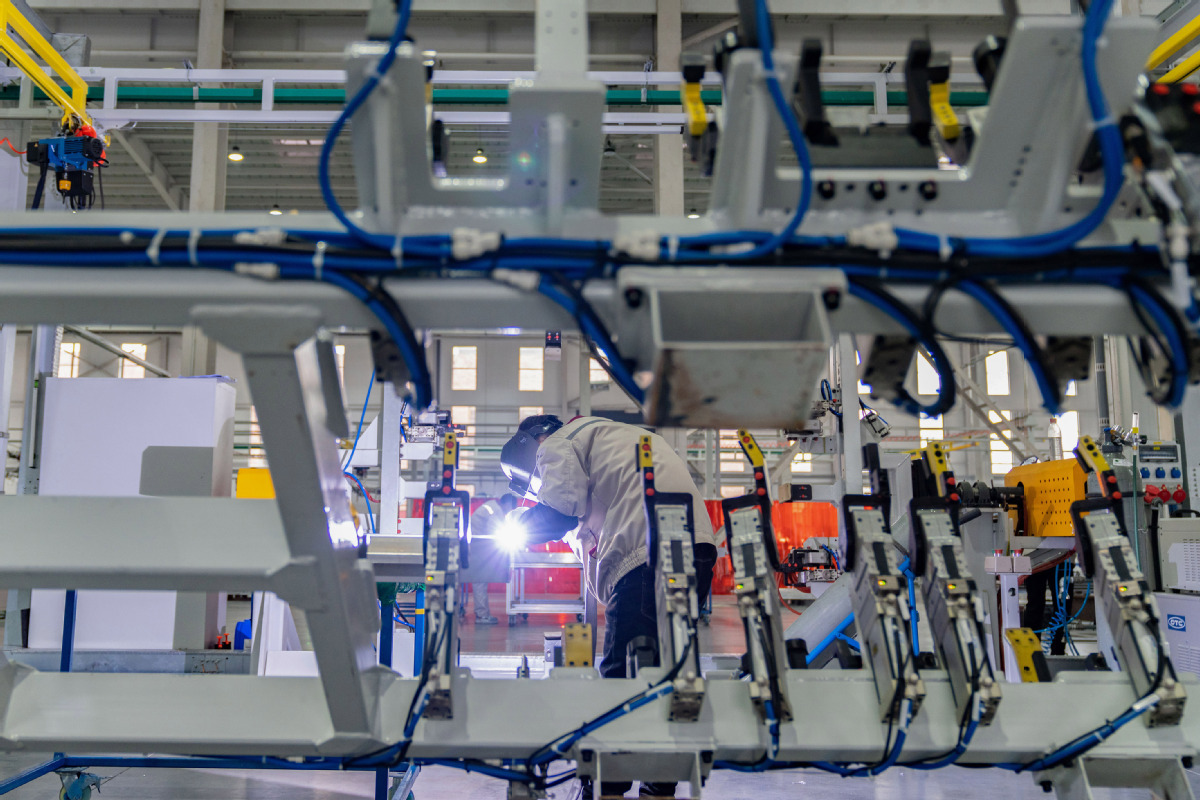Ban on EV batteries hurts US interests: China Daily editorial


In yet another move to decouple from China, US lawmakers have banned the Defense Department from buying electric vehicle batteries produced by China's biggest battery manufacturers on the grounds they pose "national security risks".
The move comes as part of the US National Defense Authorization Act passed on Dec 22, which prevents the Pentagon procuring batteries from CATL, BYD and four other Chinese companies beginning October 2027.
The impact of the restrictive measure will likely be limited given that it is still several years before the ban takes effect. In addition, it doesn't extend to commercial purchases by companies such as Ford Motor Company, which is licensing technology from CATL to manufacture electric vehicle batteries in Michigan. Yet the move is reflective of the hysteria now prevailing among some US hawks who seek to crack down on Chinese high-tech companies even at the expense of the US.
China now plays an important role in the global EV battery supply chain, accounting for more than 75 percent of battery cell production, mainly thanks to the innovative efforts of Chinese companies that enable them to make quality batteries in large quantities at a low cost. Take for instance the LFP batteries that Ford's new plant will make. The batteries cost less, have a longer life cycle, and are safer compared with other EV battery alternatives. It is thanks to CATL's long-term research that this once-considered obsolete technology has come to the fore.
It is believed that the US is already lagging "10 to 20 years behind Asia in commercialization of battery technology". Yet rather than seeking win-win cooperation with China in the sector that will determine the future of the energy transition, some US politicians have sought to politicize the issue, by unveiling rules aimed at keeping Chinese components out of EVs sold in the US.
Congress last year already passed a climate law offering billions of dollars in tax incentives to try to boost the EV industry in the US, but barring cars from qualifying for the full tax break if critical minerals or other battery components have been made by a "foreign entity of concern", namely China.
History proves that China and the US stand to gain from cooperation and lose from confrontation. The meeting of the Sino-US Financial Working Group, which concluded in Beijing on the weekend, and the seventh meeting of the China-US Agricultural Cooperation Joint Committee held in Washington last week, indicate that the trend of easing tensions between the two countries still continues, and will not be easily reversed by disruptive moves such as that to curb China's EV industry boom.
































